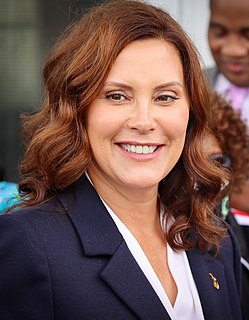A Quote by Elizabeth Warren
I pay for homeowner's insurance, I pay for car insurance, I pay for health insurance.
Quote Topics
Related Quotes
The premise of insurance is to spread the risk. It's the premise of homeowner's insurance, of car insurance, and of health insurance. It's one reason why it's important to have insurance when you're healthy, so that when you get sick, you won't go sign up just when you get sick, because that increases the cost for everyone.
Insurance is meant for extraordinary circumstances. You don't use car insurance to pay for oil changes or gasoline; you have it as protection in case you have a terrible accident or your car is stolen. You don't use homeowners' insurance to pay your electricity and water bills; you have it as protection in case a fire or other catastrophic event produces a large expense. Obviously, any insurance policy that promises to cover every small, ordinary expense is going to be much more expensive than one that covers only extraordinary expenses.
When you pay a hospital bill, you're really paying two hospital bills - one bill for you because you have a job and/or insurance and can pay the hospital. and another bill, which is tacked onto your bill, to cover the medical expenses of someone who doesn't have a job and/or insurance and can't pay the hospital.
When someone has to go to the hospital because they don't have insurance - and by the way, I think the insurance companies should be out of the mix altogether - but when someone needs health care, and they don't have the ability to pay for it, in our communities, we end up paying for it one way or the other.
How do commercial interests usually protect themselves from liability claims? Through insurance. In fact, in our society, the litmus test for safety is insurance. You can be insured for almost anything if you pay enough for the premium, but if the insurance industry isn't willing to bet its money on the safety of [biotechnology], it means the risks are simply too high or too uncertain for them to take the gamble.
I don't act because I love doing it, I act because it's my job. At the end of the year, I gotta pay my taxes, bills, doctors, insurance, car insurance, the occasional vacation. It's a wonderful job. The upside is that it is exciting and different... the downside is that it is an extremely insecure job.



































